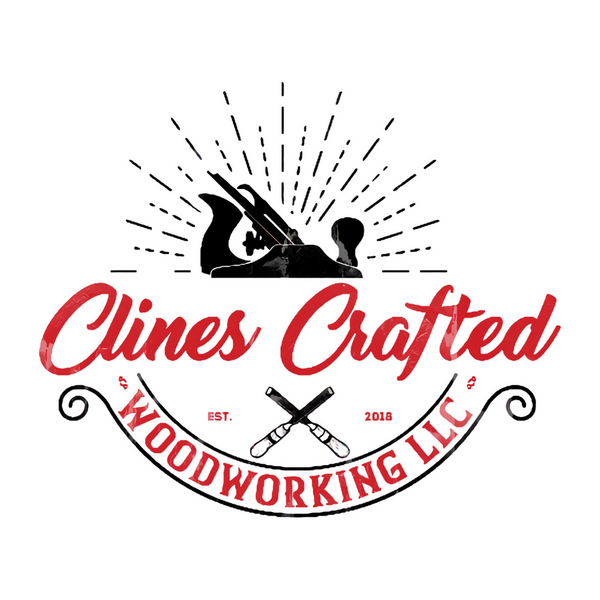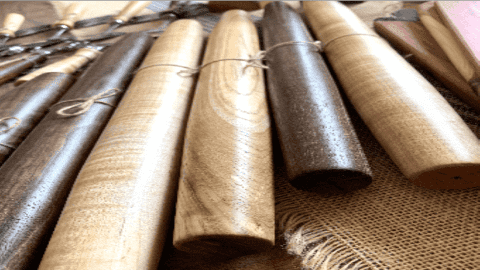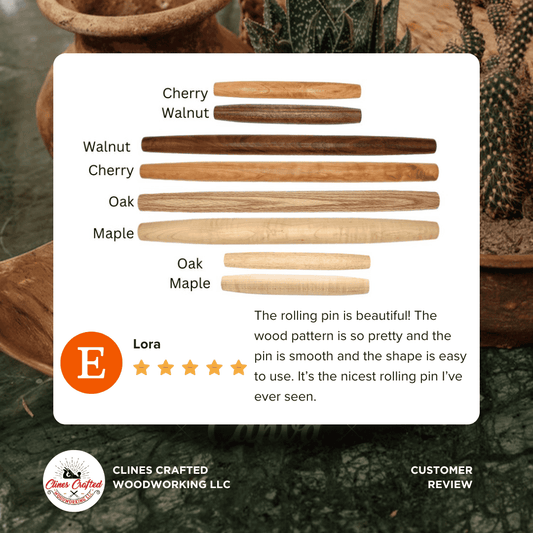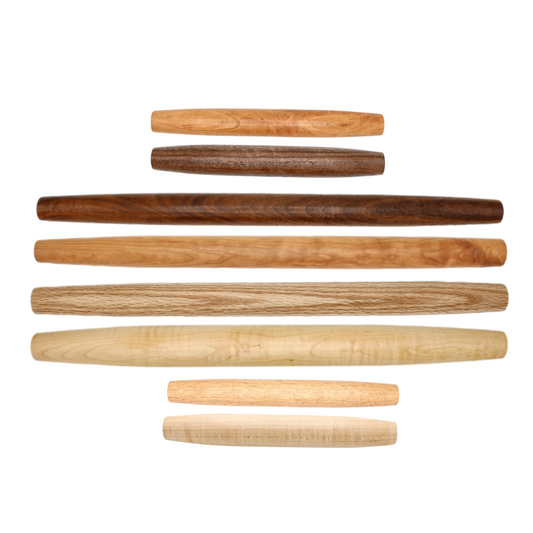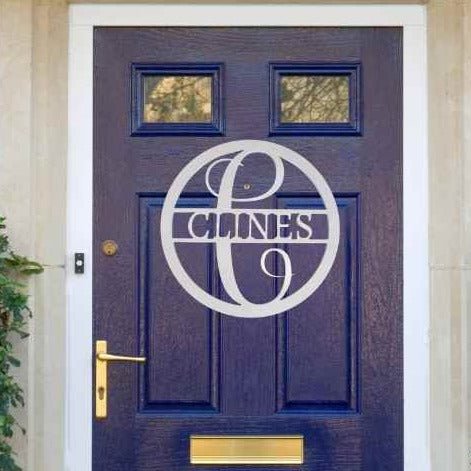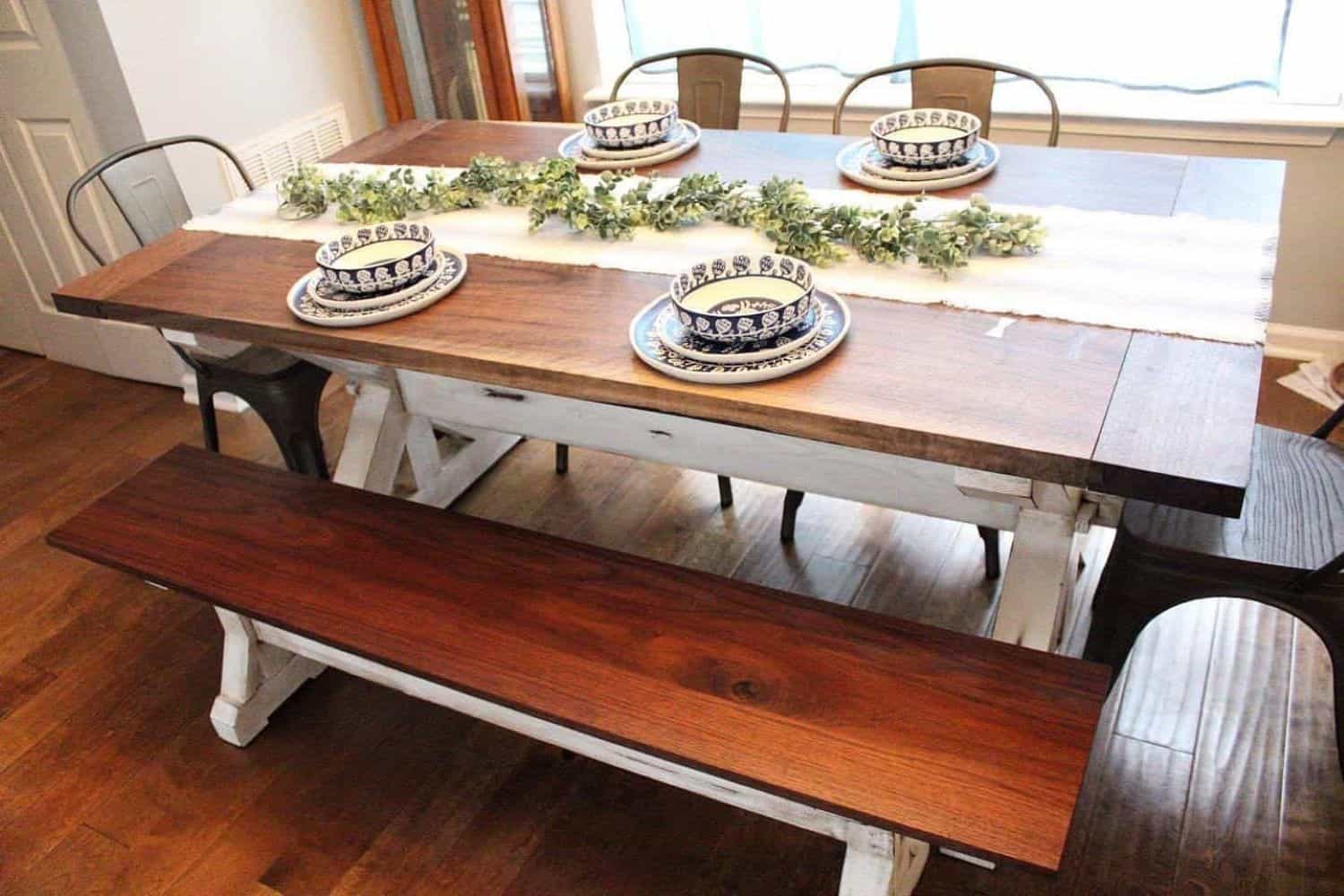Do you like to cook? Do you enjoy baking? Do you often use a rolling pin when you bake or cook at home? If you answered yes to these questions, then keep reading! You may have heard that French rolling pins are better than American rolling pins when it comes to baking and cooking, but what exactly is a French rolling pin? Is it really better than American rolling pins? And how can you know if it’s right for your needs? Keep reading to find out!
Click here to try out our questionnaire to find the perfect rolling pin for your needs!
Shop Now
Where Can You Get a Tapered Rolling Pin for Your Baking Needs?
If you're looking for a high-quality tapered rolling pin, look no further than Clines Crafted Woodworking. Located in Kentucky, we specialize in handcrafting both straight and tapered rolling pins for all your baking needs. Our rolling pins are made from locally sourced hardwoods and finished with 100% food-safe, non-toxic finishes. Plus, they're as beautiful as they are functional, making them the perfect addition to any kitchen. Visit our online shop today to find the perfect rolling pin for your baking needs.
What is a Tapered Rolling Pin?
A tapered rolling pin is a type of rolling pin without handles that is narrower in the middle and wider at the ends. This design allows you to easily roll out dough to your desired thickness while providing better control and precision. With a tapered rolling pin, you can avoid the common problem of rolling away from your body, which can lead to rips in your dough or baked goods.
What is a Straight Rolling Pin? Everything You Need to Know
A straight rolling pin is a cylindrical rolling pin without tapered ends, which means it has a consistent diameter from one end to the other. This type of rolling pin is the most traditional and has been used for centuries in baking and cooking. Straight rolling pins are versatile and suitable for rolling out all kinds of dough, including pastry dough, cookie dough, and bread dough. They are also popular among professional bakers and home cooks alike.
However, when it comes to ease of use, a straight rolling pin may require more finesse and skill than a tapered rolling pin. It can be more difficult to roll out dough evenly with a straight rolling pin because there is less leverage at the edges. Nevertheless, if you prefer a more classic approach to baking and don't mind putting in a bit more effort, a straight rolling pin may be the perfect choice for you. At Clines Crafted Woodworking, we offer a range of high-quality straight and tapered rolling pins handcrafted from locally sourced hardwoods in Kentucky. Check out our selection and find the perfect rolling pin for your baking needs!
What are the best features of each rolling pin?
Compared to an American pin, a French pin is longer and more gently curved, giving you greater leverage when rolling out dough. For most people, however, these differences don’t make much of a difference in terms of overall functionality; there are other reasons to prefer either style. At least as important as shape is material: French pins are made from wood (such as oak or maple). Because they’re made from solid wood, they tend to be sturdier than pins with metal handles and are less likely to warp over time. By contrast, American pins are hollow, become damaged if misused. Whichever style you choose will ultimately depend on your own preferences—and what makes sense for your kitchen.
Which rolling pin is easier to use?
French rolling pins are generally longer, smoother and tapered at the ends. They make it easier to roll out dough evenly, simply because of their design; with an American pin, you’re more likely to roll away from your body than toward it. This can create rips in your dough or baked good. With a Tapered French pin, though, there’s no need to worry about that since you can easily move backward if needed. Most people agree that a French pin is easier to use for inexperienced cooks. Using an American pin requires a little more finesse, which is something not everyone has right off the bat. For example, if you have shaky hands when you first start cooking—and most of us do—it might be better to stick with a French pin until you gain more experience. Besides length, both types work equally well for rolling out dough.
Shop Now
Why You Should Choose a Tapered Rolling Pin for Your Baking Needs?
If you're an avid baker, you know how important it is to have the right tools for the job. One essential tool for any baker is the rolling pin. But with so many types of rolling pins out there, how do you know which one is best for your needs? In this article, we'll explore the benefits of a tapered rolling pin and why it's the perfect choice for all your baking needs.
What Makes a Tapered Rolling Pin the Best Rolling Pin for Baking?
When it comes to choosing the best rolling pin for baking, the tapered rolling pin stands out for its versatility, ease of use, and durability. The tapered design allows you to roll out dough evenly and with precision, making it the perfect tool for everything from pie crusts to pizza dough. Plus, without handles to get in the way, you have better control over the pressure and direction of your rolling. And since a tapered rolling pin is made from solid wood, it's sturdier and less likely to become damaged over time.
What size rolling should you get?
The size of your rolling pin should depend on what you’re planning to use it for. Smaller rolling pins are useful for smaller projects like pie crusts or cookies, while larger ones are ideal for batches of bread dough or larger piecrusts. If you do get a small one, however, don’t despair—you can still make beautiful pies with it.
Why wood for a rolling pin?
Wood has been used for centuries to make rolling pins. Today, many professional bakers still swear by them for producing flakier doughs than those made with plastic, metal or silicone. Wood can also absorb some of your heat, making it easier to roll out delicate pastries . Once you’ve found one you like, you should rub it with a food grade oil every few months to keep it smooth and preserve its finish (and freshness).
American AKA Bakers rolling pin
Pros:
Comfortable Handles.
Cons:
Hollowed center making them more likely to become damaged. Requires a little more finesse to use.
French Rolling Pin AKA Tapered Rolling Pin
Pros:
Longer, Made from solid wood. Easier for most to use.
Cons:
No handles.
Where to buy a tapered French rolling?
The truth is that it’s not easy to buy a rolling pin. There are so many options on Amazon, which make sense since there are several things to consider before buying one: weight, material (wood or silicone), shape (oval, cylinder or tapered) and also length if you’re looking for a very long one. Here at Clines Crafted Woodworking LLC we have a wide range of them! Made from locally sourced hardwoods - all hand made in the Kentucky by a skilled craftsman - and coated with 100% food safe non-toxic finishes, these pins can be just what you need. Our rolling pins are as beautiful as they are functional and a great addition to any kitchen. Check them out in our shop!
